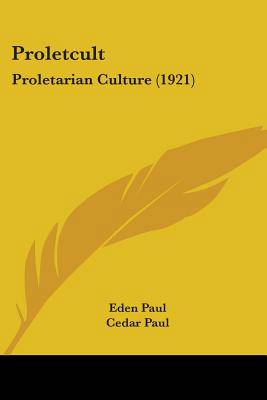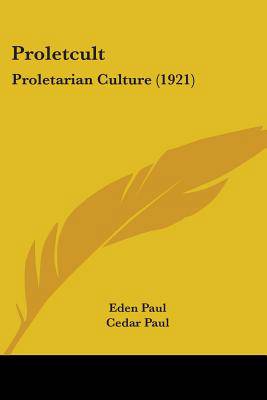
- Afhalen na 1 uur in een winkel met voorraad
- Gratis thuislevering in België vanaf € 30
- Ruim aanbod met 7 miljoen producten
- Afhalen na 1 uur in een winkel met voorraad
- Gratis thuislevering in België vanaf € 30
- Ruim aanbod met 7 miljoen producten
Zoeken
Omschrijving
Proletcult: Proletarian Culture (1921) is a book written by Eden Paul, a British socialist and literary critic, that explores the concept of proletarian culture. The book examines the idea that the working class should have their own distinct culture, separate from the dominant bourgeois culture, and that this culture should reflect the values and experiences of the proletariat. Paul argues that proletarian culture should be rooted in the everyday lives of working-class people and should be accessible to all, rather than being the preserve of an elite few. The book also looks at the role of art and literature in the proletarian culture movement, and how these forms of expression can be used to promote social change and challenge the status quo. Overall, Proletcult: Proletarian Culture (1921) is a thought-provoking exploration of the relationship between culture and class, and the potential for culture to be a tool for social transformation.This scarce antiquarian book is a facsimile reprint of the old original and may contain some imperfections such as library marks and notations. Because we believe this work is culturally important, we have made it available as part of our commitment for protecting, preserving, and promoting the world's literature in affordable, high quality, modern editions, that are true to their original work.
Specificaties
Betrokkenen
- Auteur(s):
- Uitgeverij:
Inhoud
- Aantal bladzijden:
- 160
- Taal:
- Engels
Eigenschappen
- Productcode (EAN):
- 9781437059137
- Verschijningsdatum:
- 1/10/2008
- Uitvoering:
- Paperback
- Formaat:
- Trade paperback (VS)
- Afmetingen:
- 152 mm x 229 mm
- Gewicht:
- 222 g

Alleen bij Standaard Boekhandel
+ 64 punten op je klantenkaart van Standaard Boekhandel
Beoordelingen
We publiceren alleen reviews die voldoen aan de voorwaarden voor reviews. Bekijk onze voorwaarden voor reviews.











